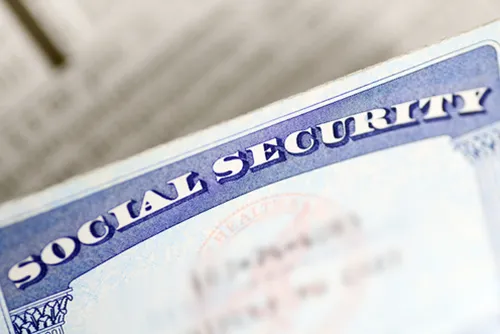The Social Security Administration’s (SSA) disability rules are strict. In fact, it’s estimated that fewer than half of applicants are approved for Social Security Disability (SSDI) when they first apply. It’s important that you work with a Louisiana disability attorney to present your strongest case when applying.
However, there are some exceptions and special rules for certain applicants. If one of these applies to you, it may be easier to win SSDI benefits. No matter what your status is, if you are disabled and unable to work, Ascend Disability Lawyers, LLC can help.
Applicants Who Are Legally Blind or Have Low Vision
The SSA may consider an applicant to be legally blind. Under their rules, if your vision cannot be improved to better than 20/200 in your better eye, you qualify. You’re also legally blind if your visual field is 20 degrees or less, even with the use of a corrective lens.
Being legally blind does not necessarily mean you are completely unable to see. Many individuals still have some sight and may be able to walk without a cane or a guide dog.
Even if you don’t meet these criteria, you might qualify for disability if your vision problems prevent you from working. Ask a Louisiana SSDI lawyer about whether your condition may qualify you.
Surviving Spouses With Disabilities
When a worker dies, the surviving spouse or surviving divorced spouse might be eligible for disability benefits if:
- The surviving spouse is between the ages of 50 and 60.
- He or she has a disabling condition that meets the SSA’s definition of disability for adults.
- The surviving spouse’s disability began before or within seven years of the worker’s death.
The application process is somewhat different for this group, and cannot be done online. Your Louisiana disability attorney can assist you.
Children With Disabilities
A child under the age of 18 may qualify for benefits as a dependent. Eligibility is based on the parent’s work record rather than the child’s. Although these benefits usually end at 18, they may continue under limited circumstances. For example, a child who turns 18 but is still enrolled in high school may continue receiving benefits until age 19.
Many of the rules concerning disabled children take into account the child’s age, when the disability began, and other factors. An adult with a disability that began before age 22, for instance, may be eligible for SSDI. This is true if the parent is deceased or starts receiving retirement or disability benefits. In this case, the SSA considers this a “child’s” benefit because it is based on a parent’s Social Security earnings record.
There are numerous other criteria that must be taken into account when evaluating a child’s qualifications for disability. Talk to your attorney about these rules to learn more.
Wounded Warriors and Veterans
SSDI and VA disability benefits are two separate programs. An injured veteran can receive both, and the amounts of compensation are not affected by each other. But a veteran must apply for both separately. If you’re a veteran, our firm can help you apply for VA benefits.
Veterans with a VA disability compensation rating of 100% Permanent & Total (P&T) may qualify for expedited SSDI claim processing. Those who developed a disability during active military service, on or after October 1, 2001, may also be eligible. Some veterans and their spouses and dependents may qualify for other Social Security benefits like retirement, Medicare, and survivors benefits.
Helping Louisiana Clients Seek the Maximum Amount of SSDI
Ascend Disability Lawyers, LLC works to win the most amount of monthly compensation for the disabled. We understand not only how to apply for SSDI but also how to appeal an adverse decision from the SSA. To learn more, give us a call today.






